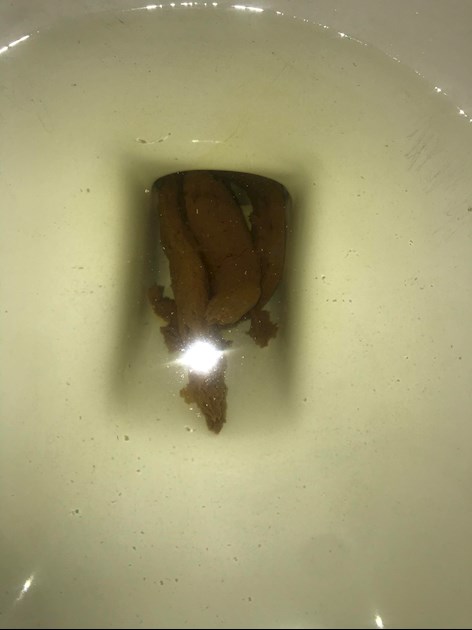
Since cancer cells multiply unchecked, the constant, extra energy consumption can cause you to feel very tired despite having normal rest. Similar to patients experiencing weight loss for no reason, cancer can also cause you to experience constant weakness and fatigue. Feeling very tired (weakness and fatigue) Make sure to consult a doctor if you experience weight loss for no known reason to find out the underlying cause. If colorectal cancer is the specific cause of your weight loss, this may be due to the tumor blocking the colon or intestinal tract, preventing proper nutrient absorption. In addition, your immune system is also spending more energy to fight and destroy cancer cells. In patients with cancer, weight loss is often a result of cancer cells consuming the body’s energy as they multiply. If you experience rapid or unintended weight loss, this may be a sign of cancer. Since the colon is located in the abdomen, so if colon cancer is the cause of your bloating or pain, it is not uncommon to feel discomfort in that area. Any obstruction in the colon, including cancer, can hinder your ability to pass gas. Most people produce about 1 to 4 pints of gas a day and pass gas (fart) up to 21 times per day. Frequent gas pains, bloating, a feeling of fullness, or abdominal cramps But if you experience narrow stools for more than a week, seek medical attention from your doctor. For the most part, narrow stools that occur infrequently are not a cause for concern. Narrow stools, especially if they are pencil-thin, can be caused by an obstruction in the colon, like a tumor. These include anything from low-fiber diets, temporary infections, irritable bowel syndrome (IBS), to colorectal cancer.

Narrow stools can be caused by several things, ranging from harmless, temporary conditions to more serious underlying medical conditions. sudden urges to have a bowel movement with an inability to control the bowel movement.Make an appointment to see your doctor if you experience the following: passing watery, diarrhea-like stools for more than 24 hours.You should seek immediate medical attention if you experience the following changes in bowel habits: Normal stools should be easy to pass and are usually brown in color. There is no standard normal for bowel habits, but if you experience significant bowel habit changes or any of the following symptoms, you should seek medical attention. While some people have a bowel movement once per day, others may have a few bowel movements per day. If any other symptoms accompany the bleedingīowel habits vary from person to person and can change because of food consumption, temporary infections, or other medical issues.If the blood is on the toilet paper or in the toilet bowl.Whether the blood is on or in the stool.If you’re experiencing rectal bleeding, you should pay attention to the following factors and talk them through with your doctor: Sometimes a blood test will reveal anemia (a low red blood cell count), which may indicate further screening is needed to discover the cause of your low blood counts. Rectal bleeding or blood in the stool should never be ignored. Not all cases of colorectal cancer will include rectal bleeding or blood in the stool however, it’s a fairly common colorectal cancer symptom and should alert you that something’s not right. If you notice blood (either bright red or very dark) in the stool (poop), make sure to talk to your doctor. If you experience any of the following colorectal cancer symptoms, talk to your doctor as soon as possible. Colon cancer symptoms and rectal cancer symptoms often overlap.

If you have any signs or symptoms of colorectal cancer, do not ignore them.

( Which is why screening is so important). Some early stages of colorectal cancer may not show any signs. Knowing the symptoms of colorectal cancer and understanding your risks may prevent this cancer from happening to you, or help you catch it as early as possible.

Share on Facebook Share on LinkedIn Share on Twitter Copy this URL Share via Email Colorectal cancer symptoms: 7 signs to see your doctor


 0 kommentar(er)
0 kommentar(er)
